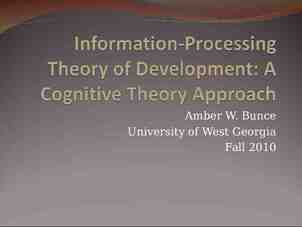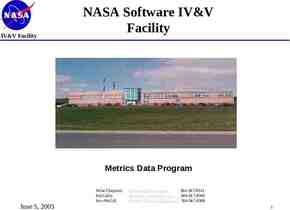An Overview of the Texas Tort Claims Act for State Agencies Michael J.
16 Slides287.52 KB

An Overview of the Texas Tort Claims Act for State Agencies Michael J. Patterson Deputy Division Chief Tort Litigation Division Views expressed are those of the presenters, do not constitute legal advice, and are not official opinions of the Office of the Texas Attorney General.

Texas Tort Claims Act: General Background Chapter 101, Civil Practice and Remedies Code Sets out the scope of tort liability for State entities and employees in course and scope of their state employment. If the tort isn’t provided for under the TTCA, then there is not a waiver of the State’s sovereign immunity. Provisions applying to State entities are separate from those applying to Municipalities. State entities are represented by the Office of the Attorney General.

Bringing Suit Under the TTCA “Suit under this chapter shall be brought in state court in the county in which the cause of action arose or a part of the cause of action arises.” Unless the State entity has a venue provision providing otherwise, suit can only be brought where the tort arises. Unless the State entity consents, suit cannot be brought in federal court, even if there are also federal claims (i.e., § 1983) Key case: Sherwinski v. Peterson, 98 F.3d 849, 851 (5th Cir. 1996)

Bringing Suit Under the TTCA Notice requirement: Tex. CRPC § 101.101(a) Claimants must generally give written notice of their claim within six months of the date that incident giving rise to claim occurs. TTCA’s written notice requirement does not apply when the governmental unit has “actual notice”: knowledge of death or injury; its alleged or possible fault in producing or contributing to death or injury; and identity of the parties involved.

Damages Cap under the TTCA Personal injuries award: 250,000.00 per person 500,000.00 per occurrence. Property damages award: 100,000.00 per occurrence Tex. CPRC 101.023(a)

Proper Parties and Election of Remedies Tex. CPRC § 101.106: Precludes suit against officials for any tort claims that occur while they are paid and acting within the course and scope of their authority. These claims will be dismissed against the official as they are truly claims against the State agency, who is the true defendant under the TTCA. Key case: Franka v. Velasquez, 332 S.W.3d 367, 381 (Tex. 2011) Texas Supreme Court interpreted CPRC § 101.106 to find that tort claim may not be maintained against government employee in his/her individual capacity for acts taken within the scope of employment. Even if there is no waiver of State’s immunity, dismissal of employee is required.

Type of Claims the TTCA Waives Immunity There are only three kinds of tort claims that a party may bring against the State: Motor vehicle accidents Use of tangible personal property Premises liability No waiver of immunity for any other kind of tort claim Intentional tort claims are expressly disallowed by the TTCA

MVA Claims Under the TTCA A governmental unit is liable when (1) property damage, personal injury, or death arises from the operation or use of a motor-driven vehicle or motor-driven equipment; and (2) the employee would be personally liable to the claimant according to Texas law. If employee’s negligence resulted in collision with another person or their property, there is exposure under the TTCA. “Operation or use” is typically, but not always, the driving of the vehicle. Key case: PHI, Inc. v. Texas Juvenile Justice Dep't, 180099, 2019 WL 1873431, at *2 (Tex. Apr. 26, 2019) The failure to set an emergency brake, causing unoccupied van to collide with helicopter, constitutes “operation or use.”

Premises Liability Claims Under the TTCA A governmental unit is liable for “personal injury and death so caused by a condition or use of tangible personal or real property if the governmental unit would, were it a private person, be liable to the claimant according to Texas law.” Tex. CPRC § 101.021 Some common TTCA premises claims include: Slip-and-falls or tripping hazards Falling tree branches Building defects (e.g., roof collapse) Road hazards Damages limited to personal injury No property damages allowed for premises claim under TTCA.

Premises Liability Claims Under the TTCA Duty Owed to Claimant: Claimant is treated as a “licensee” under the TTCA unless claimant paid for use of governmental unit’s premises. Tex. CPRC § 101.022. Licensee status: If a governmental unit has actual knowledge of dangerous condition, it has a duty to exercise ordinary care to either warn the licensee of the condition or make the condition reasonably safe. City of Denton v. Paper, 376 S.W.3d 762, 766 (Tex.2012) Invitee status: The governmental unit has a duty to make safe or warn against any concealed, unreasonably dangerous conditions it is or reasonably should be aware of but the invitee is not. Austin v. Kroger Texas, L.P., 465 S.W.3d 193, 203 (Tex. 2015). Lack of knowledge about dangerous condition is not a defense if the Claimant is an invitee.

Use of Tangible Personal Property Claim A governmental unit is liable for “personal injury and death so caused by a condition or use of tangible personal or real property if the governmental unit would, were it a private person, be liable to the claimant according to Texas law.” Tex. CPRC § 101.021 Commonly invoked in health care liability claims against government units, but could apply in other cases as well involving use of tangible personal property. Actual use required, and “nonuse of property” tort claim not sufficient to waive immunity. There is no “woulda, coulda, shoulda” claims.

Use of Tangible Personal Property Claim Issue in tangible personal property case: Does the claim involve negligence as to the tangible personal property, or is it really about the judgment of the employee? Key case: Texas Dep't of Criminal Justice v. Rangel, 581 S.W.3d 313, 316 (Tex. App.—Houston [1st Dist.] 2018, pet. granted) Was a guard’s use of a gun enough to fall under the “use” waiver of TTCA? Currently pending before Texas Supreme Court.

Common Defenses: Emergency Exception Emergency Exception: No TTCA claim for “action of employee responding to emergency call, or reaction to emergency situation if the action is in compliance with the laws and ordinances applicable to emergency action, or in the absence of such a law or ordinance, if the action is not taken with conscious indifference or reckless disregard for the safety of others.” Tex. CPRC § 101.055(2) Typically applies to drivers who are law enforcement, such as DPS Troopers or Game Wardens with Parks and Wildlife.

Common Defenses: Official Immunity Official Immunity: Precludes suit against officials for performing (1) discretionary duties (2) in good faith as long as they are (3) acting within the scope of their authority. Employee is immune if: The claim arises from the employee’s “discretionary act” which means the act required personal deliberation, decision, and judgment; The act is performed in “good faith” if a reasonably prudent official under similar circumstances could have believed the act was justified; and Within the scope of employment.

Common Defenses: Recreational Use Recreational Use Statute: Tex. CPRC § 75.001, et. seq. Limits liability of all landowners, including Governmental entities, who permit others to use their property for “recreation.” Landowners are effectively immunized from ordinary negligence claims. Claimant must show landowner injured them through “gross negligence, malicious intent, or bad faith.” Typically arises as defense to premises liability claims, but can apply to any claim under the TTCA. Key case: Univ. of Texas v. Garner, 18-0740, 2019 WL 5275579 (Tex. Oct. 18, 2019) Recreational use defense applied when Claimant who was hit by vehicle by agency employee on agency’s premises.

Contact Michael J. Patterson Deputy Chief, Tort Litigation Division (512) 475-1655 [email protected]






